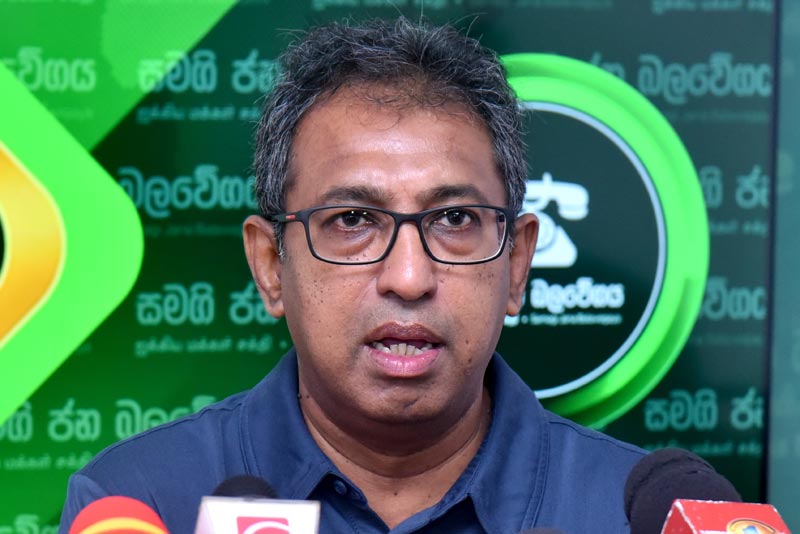Tuesday Feb 17, 2026
Tuesday Feb 17, 2026
Monday, 5 August 2024 03:08 - - {{hitsCtrl.values.hits}}

SJB MP Dr. Harsha de Silva - Pic by Ruwan Walpola
The Main Opposition, Samagi Jana Balawegaya (SJB), said the party had once expressed to the IMF its commitment to the ongoing program in Sri Lanka, but that it would move amendments to support economic reform and provide relief to the people.
Addressing a media briefing, SJB MP Dr. Harsha de Silva said, if bilateral creditors and ISB holders receive a haircut of up to 14% in 2028, the same should be applicable to Domestic Debt heaped on the EPF fund, and stated that the IMF had not presented an argument against that.
“The SJB feels that the present framework within the IMF deal doesn’t do enough to promote Sri Lanka as an export-led economy to make us more competitive in the global market. The IMF listened intently and they didn’t say this cannot be done. Our party leader said we want to reform the economy and provide relief to the people. Our policy sits in contrast to that of the JVP-led NPP, for instance, who have called it unconstitutional and are looking to promote the growth of import substitutes and have taken the matter to Court also,” Dr. de Silva said.
The Parliamentarian said Sri Lanka and the IMF must agree on a sustainable debt repayment program, and noted this must be signed with a leader that has received the mandate of the people after the election, as the agreement will be in place up until 2040.
“Even the pro-Government SLPP members say that cannot be done and this shows the difference between the two parties. I don’t know if the JVP even met with the IMF. The people expect some relief from a new government. The people should vote for a party and people that can work together with the IMF, but with the strength and capacity to negotiate with them.”
Dr. de Silva said his party believes the SJB is currently leading popularity polls in the run-up to the election, and scoffed at notions that any diversion from the incumbent leadership and Government could once again lead to a socio-economic crisis as in 2022.
He noted the cost of living must be brought down, and this must be done with more focus on direct taxation. However, income tax on the middle class must come down to around 24%, alongside a digital public revolution to enhance people’s livelihoods and experience.